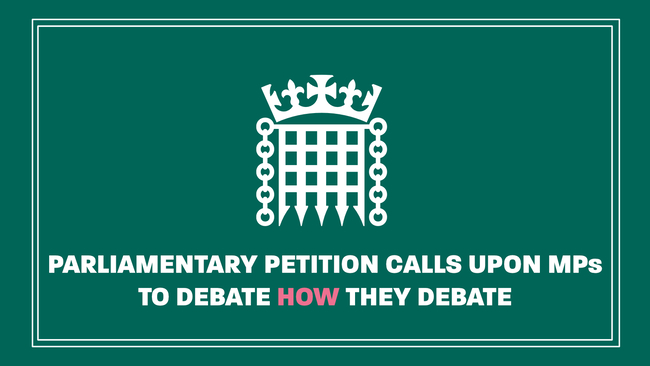A collective of organisations and concerned individuals has initiated a parliamentary petition aimed at fostering inclusivity towards those with communication differences within Parliament. The petition highlights the current atmosphere of parliamentary discussions as a hostile environment that intimidates individuals who communicate in unique ways, fearing they will be harshly criticised.
The driving force behind this movement was the decision of Chris Nelson, a Liberal Democrat, to retract his candidacy in the forthcoming General Election, following derogatory remarks about his speech impediment made by his political peers.
The campaign is spearheaded by STAMMA, the British Stammering Association, with support from signatories that include the Royal College of Speech and Language Therapists, the Michael Palin Centre, Disability Rights UK, and the Co-op, alongside STAMMA Patron, actor and podcaster Scroobius Pip.
Paul Fix, STAMMA’s Chair, stated, “It can’t be right that people fear to stand for Parliament, believing they won’t be heard or listened to because of their difference. We want Parliament to hold a debate to examine how they debate, and whether name calling, jeering and booing, should be allowed”.
Elaine Kelman from the Michael Palin Centre remarked, “As speech and language therapists, we support people with communication challenges and differences to become more effective and confident as communicators. As he publicly acknowledged, we helped Chris Nelson to do this with his stammering. It was so disappointing to learn that his experiences of bullying by those he sought to serve alongside in politics, led to his decision to stand down as candidate. We expect our parliament to demonstrate the same respectful behaviour and support for difference that is expected of all of us in our workplaces”.
Paul Gerrard of the Co-op shared, “For nearly 30 years I have worked with parliaments and politicians across the UK and have done so with a stammer. It isn’t something to be overcome, it’s part of me. Too many people, especially in politics, see it as a weakness or a vulnerability to be exploited. It is hurtful, it is plain nasty but above all else it prevents talent from entering public service which is something we can ill afford. This petition is asking those who represent us and make our laws to act with respect and welcome all views not just those who sound like them”.
Steve Jamieson, the Royal College of Speech and Language Therapists’ Chief Executive, declared, “We fully support STAMMA’s petition calling on Parliament to practise inclusive communication and embrace peoples’ differences. People should never be heckled or made fun of for having speech, language, and communication difficulties. As our elected representatives, they should be fostering an environment where everyones’ voice is heard, and bad behaviour is not tolerated”.
Kamran Mallick, CEO of Disability Rights UK, commented, “Creating an inclusive society that works for everyone has to start with the government. Their role is to set the example, ensure that different voices and experiences are heard, and create environments that value and respect difference. Parliament should be a space to debate robustly and not a place where Disabled people fear bullying and discrimination. Our country will only benefit from diversity in political life. We stand in solidarity with STAMMA in calling for a change so that individuals who stammer can realise their ambitions of a role in public life”.
Annually, STAMMA addresses over a thousand inquiries from parents of children who stammer and adults who face stammering challenges, some of whom report discrimination due to their manner of speaking. Last year, the organisation introduced an Advocacy Service to address complaints of mockery and discrimination.
This petition seeks to prompt Members of Parliament to discuss and evaluate the effectiveness of our current debating framework for individuals with diverse communication styles. Initial supporters of the petition include individuals who stammer and those who support people with stammering or communication differences.






